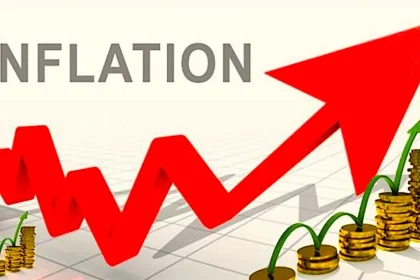In a bidaimed at alleviating the crippling debt burden faced by power generation companies (GenCos), the Nigerian Midstream and Downstream Petroleum Regulatory Authority (NMDPRA) has significantly reduced the price of natural gas for the power sector. This decision comes amidst a staggering N2 trillion debt owed by GenCos to gas suppliers, threatening the stability of Nigeria’s electricity supply.
The NMDPRA’s recent document, “Announcement on Establishment of The Year 2025 Domestic Base Price and Applicable Wholesale Price of Natural Gas for the Strategic Sectors,” reveals that GenCos will now pay $2.13 per million British thermal units (MMBtu), effective April 1, 2025. This marks a notable shift from the March 2024 revised pricing, which had increased the Domestic Base Price (DBP) for the power sector to $2.42 per MMBtu.
“Accordingly, after due consultation with key industry stakeholders and taking into cognisance the provisions of the PIA and market realities, the NMDPRA hereby establishes the new Domestic Base Price as USD 2.13/MMBtu and wholesale prices of natural gas in the strategic sector, effective 1 April 2025,” stated Farouk Ahmed, Chief Executive of NMDPRA, in the official document.
The reduction in natural gas prices is a critical intervention, considering that over 70% of Nigeria’s power plants rely on gas. The GenCos, grappling with a reported N4.7 trillion debt, are facing severe liquidity challenges, raising concerns about potential power plant shutdowns.
“As for liquidity, GenCos are seriously suffering and urgently need pragmatic solutions to ease the liquidity crisis, totalling N4.7tn,” emphasized Dr. Joy Ogaji, Chief Executive Officer of the Association of Power Generation Companies.
Read Also: Nigeria’s Power Grid on Edge: Financial Strain Threatens Blackouts
The Nigerian Gas Association, through its President, Mr. Akachukwu Nwokedi, acknowledged the regulator’s efforts. “We have to acknowledge, and I must commend the recent release by the NMDPRA of the domestic gas pricing framework. While pricing remains a very sensitive issue, this move signals greater clarity and structure and, if implemented effectively, could help unlock more supply for the domestic market and spur industrial consumption.”
The Minister of Power, Adebayo Adelabu, through his media aide, Bolaji Tunji, assured that the government is actively addressing the crisis. “We are always intervening. I can assure you that no power plant will shut down; nothing like that will happen because of the effect of that on the economy. The government will not allow anything to happen that will cause a problem for the economy,” Tunji stated.
This price reduction represents a significant step towards stabilizing Nigeria’s power sector, potentially preventing widespread blackouts and mitigating the financial strain on GenCos. However, the long-term impact will depend on the effective implementation of this new pricing framework and the government’s ability to resolve the outstanding debt issues.
Meta Description:
Focus Keyword:
Similar and Related Keywords: .
SEO Tags: .












